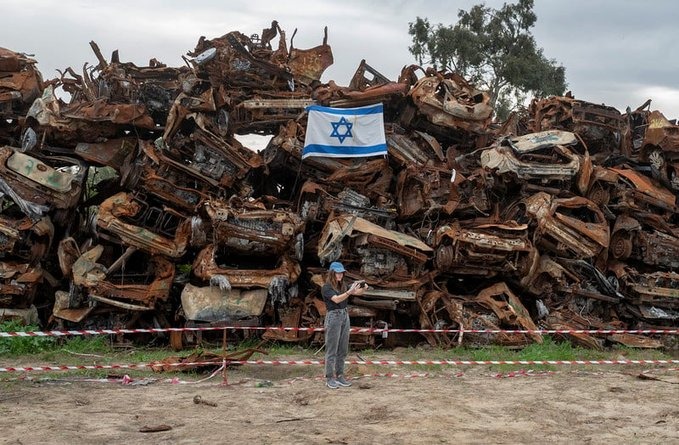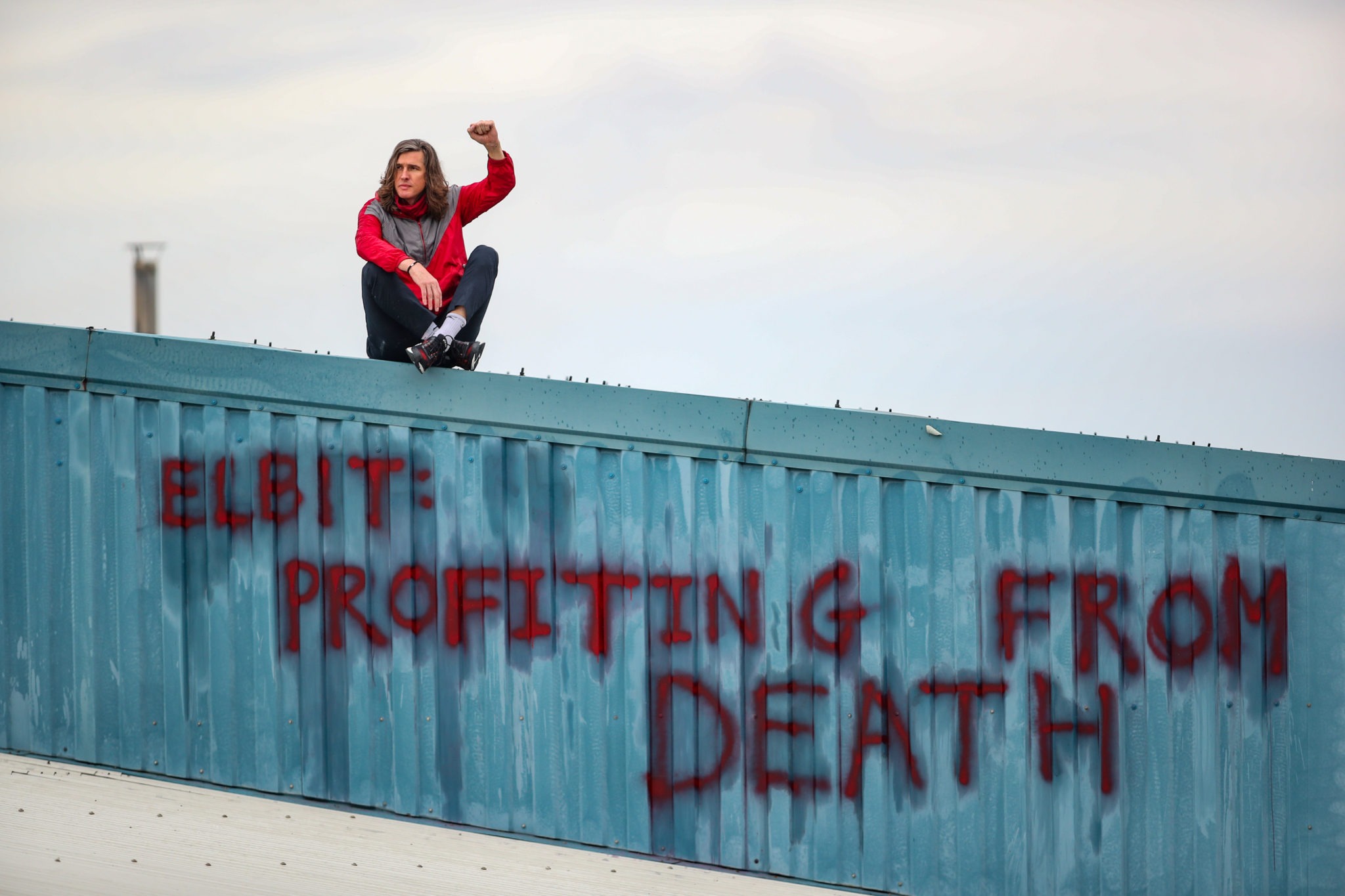Last week marked the one-year anniversary of the unprecedented October 7, 2023, offensive by Palestinian resistance forces against Israeli military bases and settlements surrounding Gaza.
This event, now etched deeply into the history of the Israel-Palestine conflict, has been the subject of multiple reflections, analyses, and investigations over the past year. As the aftermath continues to unfold, new revelations regarding the events of that day are raising critical questions about both the Palestinian offensive and the Israeli response.
On that day, Palestinian fighters launched a highly coordinated military operation targeting Israeli military installations and settlements in the Gaza periphery.
This operation, known as “Operation al-Aqsa Flood” by Hamas, was a watershed moment in the long-standing conflict. According to various sources, including senior Israeli military personnel, the offensive was a severe blow to Israeli defenses. Israeli officers described it as one of the most significant breaches in the country’s security since the 1973 Yom Kippur War.
In a rare admission, a senior Israeli officer stated that the Gaza division had been “overpowered,” and called it an event that “will remain a scar burnt into our flesh forever.”
However, the aftermath of the attack has revealed far more complexities than initially reported.
A year-long investigation by journalist Asa Winstanley, published just last week, has uncovered damning details about the Israeli military’s response on October 7th, including the controversial use of the Hannibal Directive—a military protocol that allows Israeli forces to target their own soldiers if there is a risk they may be captured by enemy forces.
The Hannibal Directive: A Deadly Policy
First introduced in 1986, the Hannibal Directive permits Israeli military forces to take extreme measures, including lethal force, to prevent the capture of Israeli soldiers. The reasoning behind this controversial directive is that captured soldiers could later be used as bargaining chips in prisoner exchanges, something Israeli military planners deem unacceptable. In practice, this policy means that under certain conditions, Israeli forces could target and kill their own soldiers to prevent them from falling into enemy hands.
Winstanley’s investigation draws on multiple sources, including Israeli journalists Ronen Bergman and Yaron Zilberman, who in their own work published a minute-by-minute breakdown of the military’s actions on October 7th. According to these reports, the Israeli military issued orders that day to put the Hannibal Directive into practice. As a result, Israeli helicopters, drones, and tanks fired on both Palestinian fighters and Israeli captives, killing scores of people.
One of the most chilling revelations of Winstanley’s investigation is an incident in Kibbutz Be’eri, a settlement just five miles from the Re’im military base, where Palestinian fighters had taken Israeli civilians and soldiers captive. Survivors from the settlement, such as Yasmin Porat, have publicly testified that Israeli forces bombed the house where captives were being held, killing both Palestinians and Israelis. In an interview with Israeli state radio, Porat recounted how Israeli forces “eliminated everyone, including the hostages.” Her testimony was echoed by other survivors, who described how Israeli tanks fired upon houses in the area, killing not just the fighters but also the captives they sought to rescue.
Despite this evidence, mainstream Western media have largely remained silent on the issue. While independent outlets like The Electronic Intifada and a few investigative journalists have covered these events, the narrative remains absent from the wider international discourse. Winstanley’s article underscores the significance of the Hannibal Directive in the context of the October 7th offensive, pointing out how it led to the deaths of hundreds of Israelis—many of them at the hands of their own military.
Netanyahu Rejects Calls for Inquiry
As these revelations come to light, Israeli Prime Minister Benjamin Netanyahu has faced mounting pressure to address the security failures that led to the October 7th attacks and the military’s controversial response. However, despite widespread demands for an independent inquiry, Netanyahu has resisted, stating that his primary focus is to “beat Hamas” before any investigation takes place. In a speech to the Israeli parliament, Netanyahu said: “First, I want to beat Hamas,” deferring calls for immediate accountability.
A spokesperson for Netanyahu further elaborated on the prime minister’s stance, explaining that the government is “completely focused on winning this war” and that now is not the time for introspective investigations. “What people want us to do right now,” the spokesperson said, “is not to dive into a dramatic internal investigation while our hostages are still being held, and so many soldiers have sacrificed their lives to protect the country.”
This refusal to launch an inquiry has drawn widespread criticism, including from Israeli Defense Minister Yoav Gallant, who last week called for the formation of a state commission to investigate the 7 October attacks. Gallant argued that the inquiry should “examine all of us: the decision-makers and professionals, the government, the army, and the security services.” He added that the failures leading up to the attacks were a result of decisions made by successive Israeli governments over the past decade.
Tensions came to a head during a tense three-hour meeting between Netanyahu and bereaved families of the victims, where the prime minister was confronted over his role in the security failures. Family members shared stories of how their children, who served in the lookout unit in Nahal Oz, had warned their commanding officers about an impending attack. Their warnings, however, were reportedly ignored. One participant in the meeting recounted how her daughter, a newly trained observation soldier, had returned home days before the attack, saying, “Mum… there’s going to be an invasion.”
Despite these personal testimonies, Netanyahu rejected calls for an apology and has continued to deflect responsibility for the failures, insisting that the focus should remain on defeating Hamas.
International and Domestic Repercussions
Netanyahu’s refusal to initiate an inquiry has not only drawn criticism within Israel but also caught the attention of international human rights organizations. Human Rights Watch recently accused Hamas and other Palestinian armed groups of war crimes and crimes against humanity during the October 7th attacks, in which nearly 1,200 people were killed and over 250 were taken hostage. In response, the Israeli government has launched a relentless air and ground campaign targeting Gaza, resulting in the deaths of more than 42,000 Palestinians, including more than 16,000 children, according to humanitarian organizations, with thousands more believed to be buried beneath rubble. Last month, a leading doctor in Scotland wrote in The Guardian newspaper that she suspected the total number of people killed by Israel to be closer to 500,000.
These figures have only amplified calls for accountability on both sides. International bodies, including the United Nations, have released reports pointing to Israeli military operations that, in some cases, may have contributed to the deaths of Israeli citizens. A June 2024 report by the UN Human Rights Council confirmed that the Hannibal Directive was used in several instances during the October 7th offensive, resulting in Israeli casualties. The report stated that there were “strong indications that the Hannibal Directive was used at the Supernova Rave,” where helicopters and other military assets were deployed over the festival site as Israeli captives were being taken.
Meanwhile, high-ranking Israeli officials have begun to step down in the wake of the attacks. Major General Aharon Haliva, head of Israeli military intelligence, resigned in April, citing his department’s failure to avert the attack. Haliva is the highest-ranking official to have resigned over the incident. His resignation followed that of a member of Israel’s Shin Bet security agency, known only by the initial “Aleph,” who stepped down amid frustration over the agency’s inability to prevent the attack.
The Road Ahead: A Struggle for Truth and Accountability
As the one-year anniversary of October 7th passes, the push for a transparent inquiry into the Israeli military’s failures continues to gain momentum. For many Israelis, the events of that day and the government’s response have left deep wounds. Protests calling for Netanyahu’s resignation and for an independent investigation have drawn broad support across the political spectrum, with many arguing that the public deserves answers.
As the situation continues to unfold, the coming months will be critical in determining whether the full truth of October 7th is ever brought to light—and whether the Israeli government will face a reckoning for its role in the deadliest attack in its history.




